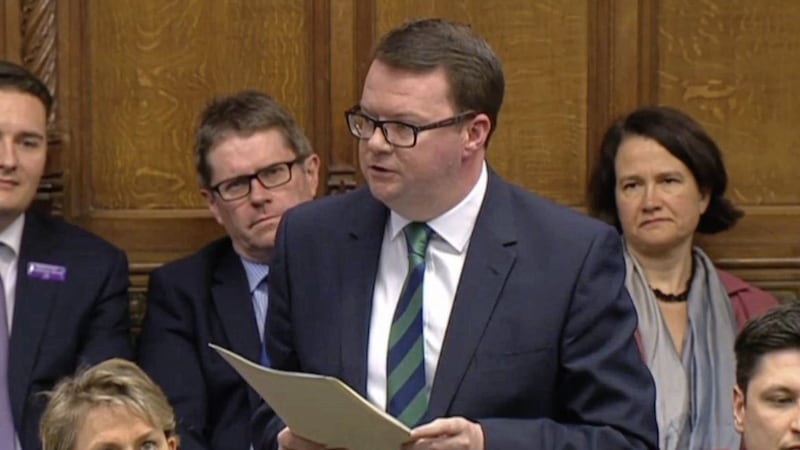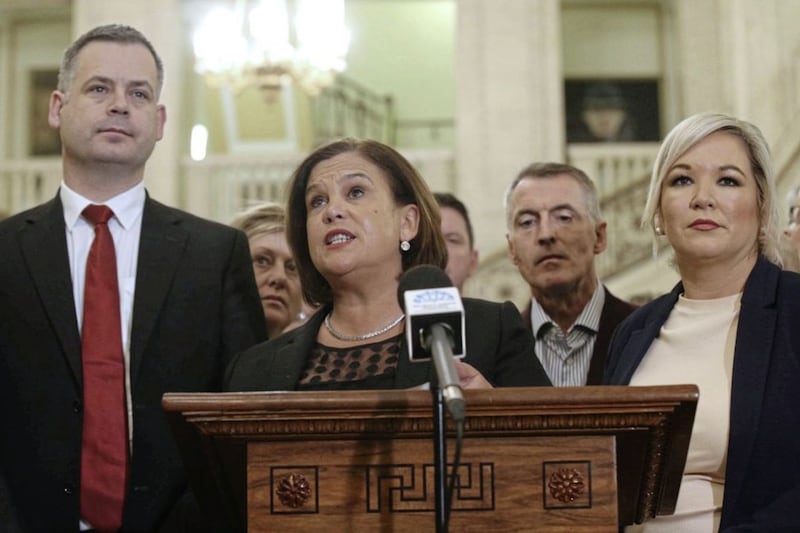IT was yet another example of the increasingly topsy-turvy political world we inhabit with MPs voting in one fell swoop to remove the border down the Irish Sea which has hindered women's access to abortion and prevented same sex couples getting married.
It was an unprecedented move, initiated in part by Conor McGinn, an MP born in south Armagh but with a constituency in the north of England. Together with his Labour colleague Stella Creasy's amendment, paving the way for the liberalisation of the north's antiquated abortion laws, it has certainly put the DUP's nose out of joint, publicly at least.
"What incentive is there now for Sinn Féin to return to Stormont?" its irked MPs ask, as speculation mounts that a similar manoeuvre could see the introduction of an Irish language act, a pledge the British government made to Sinn Féin at St Andrews more than a decade ago but failed to fulfil. The current process aimed at restoring the Stormont institutions appears to be drifting aimlessly towards inconclusiveness with several internal and external factors impeding agreement. The two governments and the five parties appear to be going through the motions.
At a basic level, Westminster's overwhelming support for changing the law on abortion and same sex marriage is likely to dismay the DUP, who must feel increasingly out of step with their counterparts 'on the mainland'. When it came to a free vote for MPs, the confidence and supply deal that has given the party disproportionate power over the past two years counted for nothing.
But look behind the outrage voiced from the green benches on Tuesday and you may detect a sense of relief in the DUP ranks. With legislation on same sex marriage and abortion imposed above their heads, the DUP is absolved of responsibility for its implementation. And while publicly the DUP would not welcome an Irish language act initiated at Westminster, such a move would enable Arlene Foster's party to overcome a key hurdle to restoring devolution at some stage in the future, yet save it face.
Equally, Sinn Féin may object to direct rule from Whitehall but be more amenable to Westminster interventions when it chimes with the party's agenda. These are indeed strange days when unionism bemoans London's interference and republicans welcome the meddling of the British parliament.








